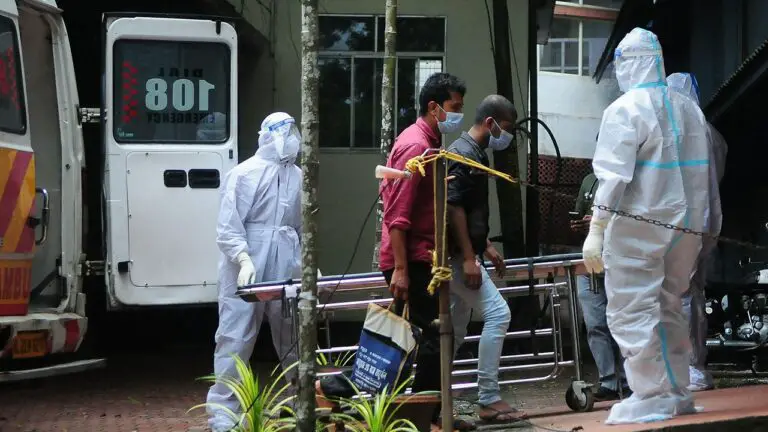Nipah Virus Outbreak Sparks Urgent Response in India
Health officials in India are on high alert as they race to contain an outbreak of the Nipah virus, a deadly disease with a staggering fatality rate of up to 75%, according to the World Health Organization.
Testing and Vigilance
In the southern state of Kerala, approximately 800 people have undergone testing in recent days. Among them, two adults and a child have tested positive and are currently receiving medical care in a hospital, as reported by Reuters. Veena George, the state’s health minister, emphasized their proactive approach, stating, “We are testing human beings and simultaneously collecting fluid samples from forested areas that could be potential hotspots for the virus.”
Preventive Measures
To curb the spread of the virus, authorities have taken swift action. Public offices, government buildings, and religious institutions have been temporarily closed in affected regions. Samples of bat urine, animal droppings, and partially eaten fruit have been collected from the village where the initial victim resided, providing critical clues for containment efforts.
Understanding the Nipah Virus
The Centers for Disease Control and Prevention (CDC) classify the Nipah virus as zoonotic, meaning it can be transmitted from animals to humans, with fruit bats being its primary carriers in nature. The virus can also affect pigs and humans, leading to conditions such as encephalitis (brain swelling) and varying degrees of illness, including fatalities.
Symptoms and Severity
Infected individuals typically experience symptoms like fever, headaches, muscle pain, vomiting, and sore throat. These may progress to dizziness, drowsiness, altered consciousness, and neurological signs, indicating acute encephalitis. Severe cases may lead to coma within 24 to 48 hours. Some individuals may also develop atypical pneumonia and severe respiratory problems.
Transmission and Treatment
The virus spreads through direct contact with infected animals or humans and their bodily fluids, as well as through the consumption of contaminated food products. Unfortunately, there is no specific treatment for Nipah virus infection. Patients receive supportive care, including rest, hydration, and symptom management.
Past Outbreaks
India and Bangladesh have experienced previous Nipah virus outbreaks, resulting in fatalities. In 2001, 62 people lost their lives, and in 2018, the virus claimed 21 lives in India’s Kerala state.
As health officials remain vigilant, the race to contain this outbreak continues, highlighting the importance of early detection and preventive measures in tackling this deadly virus.

